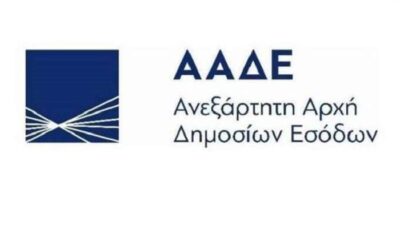Savas Robolis: How the Troika fudged the figures to support the Greek Memoranda
22/06/2020
The coronavirus pandemic in Europe and the way it has been faced (the adoption of “herd immunity”) by some European countries, combined with Turkey’s geopolitical-energy challenges in the Middle East and the Eastern Mediterranean, has highlighted and continues to highlight western arrogance in the most succint way.
Arrogance that was initially demonstrated by the imposition of austerity policies during the 2010s on indebted EU countries by creditors’ representatives (the Troika of international organizations: the ECB, the IMF, the EU). And this feature is particularly noticeable in the behavior of the countries of the European directorate towards European countries and peoples whom they underestimate, diminishing at every opportunity the economic interests of said peoples and fundamental rights (geopolitical, social, labor).
In this regard, the recent assignment by the ESM to an “independent” researcher for the publication (11/6/2020) and the conclusions of the relevant Report on the evaluation of the financial assistance of international organizations to Greece, confirm this feature of western arrogance. More specifically, an examination of the report highlights, among other things, its key findings for loan programs in Greece (first, second, third Memorandum).
The “undesirable” consequences
These findings summarize that the specific loan programs, totaling 339 billion euros (110 billion euros in the first, 143 billion in the second and 86 billion in the third Memorandum), had a unique goal: achieving Greek debt sustainability. and the rescue and financial stability of the banking system. Of course, the “undesirable” consequences of these programs, as the report describes them, could not be assessed when the memoranda policies were proposed.
We remember the rapid decline in investment, and the demand for goods and services, the rapid rise in unemployment and the decline in the workforce with the migration of highly skilled workers (brain drain) and the increase in the shadow economy (at the expense of the real economy). However, these policies were not foreseen by the international organizations, or they did not know how to foresee the loan support programs of the Greek economy.
In addition, the report fails to report in detail the effects of the Memoranda. These were 27% decrease in GDP, 6.3% decrease in labor productivity, 25.7% decrease in purchasing power, 18% decrease in labor costs per unit of labor and a decrease in the labor force by 6%.
Other effects were a 23.3% decline in domestic demand and an increase in statistical unemployment to 27.5% (1,330 million unemployed in 2013 from 495,000 unemployed in 2009), a 40% decrease in the average income of workers, a 45% reduction in pensions (a loss of € 63 billion cumulatively) and the migration of 425,000 people of a skilled workforce of productive age (under 45).
Dubious use of statistical data
However, what is particularly important to consider is the use of statistical data and methodology of studies prepared by international organizations, in order to promote specific policies. The latter focused, inter alia, on the demonization (as a top waste of a country’s revenue) of the welfare state and the significant reduction in social spending.
Typical examples of this strategy were the ongoing health spending reduction policies. The result was the establishment of a denuded public health care system in Greece. A health care system that (without the exhausting and dedicated employment of the medical, paramedical and administrative-technical staff) would be unable to cope with the pandemic.
In addition, the ongoing deregulations promoted in the social security system with the institutional transformation of basically, state responsibility, into the personal responsibility of the insured. In particular, retirement age was linked to life expectancy.
The result is that the age limit is adjusted every three years, from 2021 onwards, while the conversion of supplementary insurance into individual accounts essentially depends on the amount of the supplementary pension from life expectancy and the course of GDP growth. Also, the automatic cutting mechanism of the level of pensions (main and auxiliary) was instituted. Thus, the upper limit of the total pension expenditure will not exceed 16.2% of GDP.
The pension expenditure index
All of the above-mentioned memoranda policies by the Troika of international organizations were based on studies of the social security system, which adopted the most pessimistic working hypotheses. This means that the international organizations, in order to conduct their studies, took into account the financial statistics of the recession, ignoring all the statistics of the Greek economy.
Specifically, for the calculation of the pension expenditure index as a percentage (16.2%) of GDP by 2060, they considered that the average annual rate of change in Greece’s GDP will be 0.7% by 2060. This working hypothesis was used in the study for Law 4387/2016, which calculated the replacement rates. These rates reduced the pensions of future generations by 35% compared to the current average.
At the same time, the average annual rate of change in GDP in the 27 EU countries was considered equal to 1.5% (Eurostat). And for the recent Law 4670/2020, this working hypothesis improved slightly (0.9%). The result was to calculate the increase in replacement rates for more than 30 years of insurance and to lower the reduction of future generation pensions to 25%, compared to the current average.
Consequently, the following methodological question arises: On what statistical basis were the ongoing studies of international organizations based to adopt the aforementioned basic working hypothesis? This is because the use by the Troika of Eurostat’s international rating agencies (1.5%) would (according to our calculations) result in a reduction in the total losses (63 billion euros) of pensioners by half. In addition, the replacement rates for future generations’ pensions would be at the level of 62% at 40 years of work and not at the level of 50% established by the recent Law 4670/2020.
“Fudging figures” with the fertility index
Another example of the work hypotheses used by international organizations in their studies was the fertility rate (the number of children per woman of childbearing age). According to historical data from 1970 to 2016, the average price of the index is 1.63 children per female (Eurostat).
This indicator had reached its lowest level in 1999 (1.23 children per female) and then in the next 10 years it increased by 21%, reaching 1.52 children per woman in 2008. This increase was stopped by economic crisis and recession, which reduced the price of the index to 1.3 children per female, by 2014.
In contrast, international organizations, taking into account only the years of the crisis and ignoring the decade of growth, considered as a working hypothesis in their studies that the fertility rate will reach the historical average (1.63 children), after 60 years and throughout during this period (2020-2080) the price of the index would have averaged 1.43 children per female (ie 14% lower than the historical average).
Wrong working hypotheses for the Memoranda
Under these methodological conditions, the international organizations used in their relevant studies work hypotheses for the Greek economy, the labor market and the social security system in Greece. Cases of work, both during the period of economic crisis and recession, and in the coming decades of the 21st century.
These employment cases to date (as a result) have not been verified in their forecasts (recession, multipliers, per capita GDP, primary surplus, unemployment, etc.). International organizations make successive and retrospective assessments of their methodological and quantitative errors.
But at the same time, they do not make the requisite and necessary corrections for the future, in the intermediate and final evaluations of the enacted policies. However, such behavior feeds (among other things), not just the reproduction of Western arrogance in the European directorate, but also makes it a feature of the European formation, with all that this negatively implies for its dynamic and coherent perspective.





